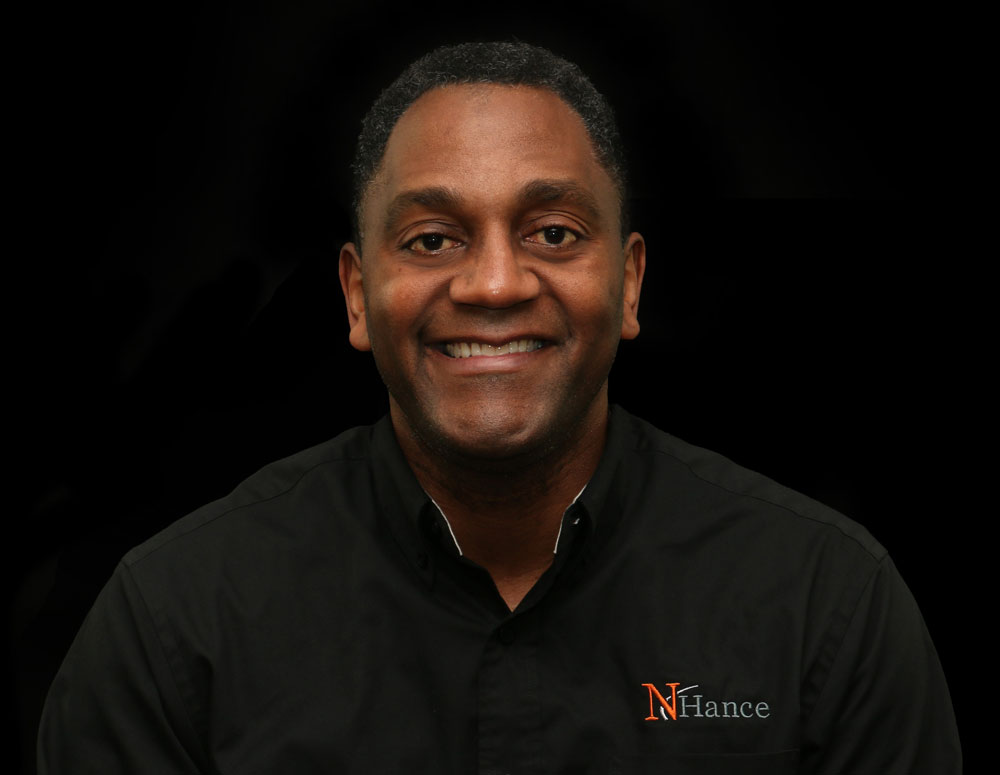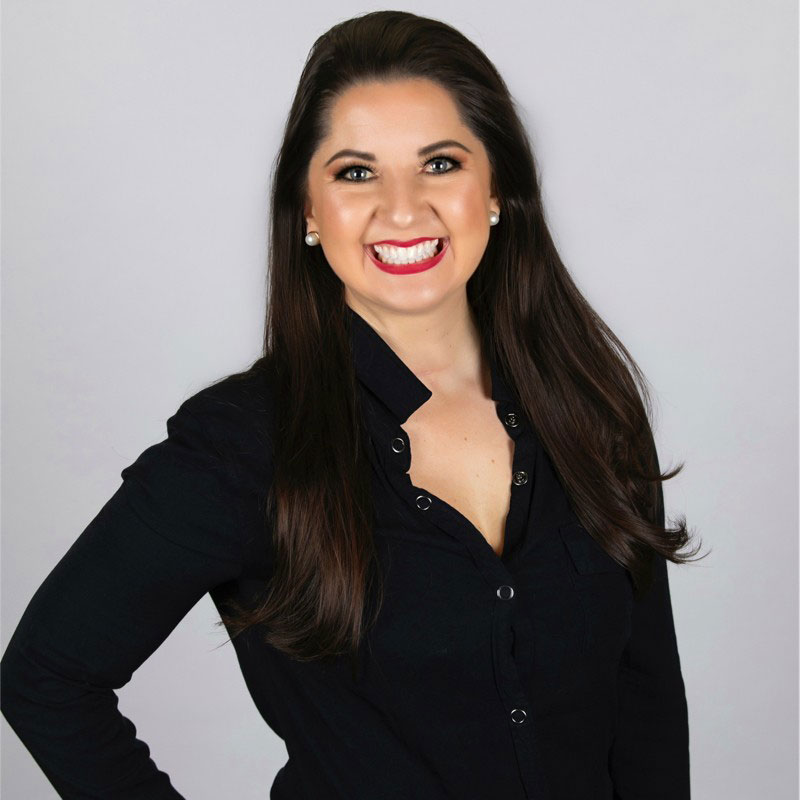Megazors! Scaling their way to success

If you needed a massage or a home repair just a few short decades ago, your first thought most likely did not involve hitting the Yellow Pages in search of your friendly neighborhood franchisee.

In fact, says D’Wayne Tanner, vice president of franchise development at Belfor Franchise Group, most people back then thought of franchises only when they wanted a burger, pizza, or waffle. “Now, it’s much broader than food, and I think that understanding has finally hit the common person,” he says.
Tanner, who got his start in franchising as a McDonald’s owner, says he is amazed by how many offerings franchising today has in the home services space. Belfor currently has 13 brands. (Neighborly, formerly the Dwyer Group, is the acknowledged giant in the home services sector with more than 30 brands globally!)
As franchising has become more popular over the years, the trend has been for ever-larger franchisors to offer multiple, often complementary, brands under a single corporate umbrella. With the trend toward ever-larger franchisees operating multiple brands, today’s owners are more financially and operationally capable of expanding their portfolios through diversification and cross-branding.

It has to scale
So what’s behind the multi-brand franchisor trend? For Tony Nicholson, vice president of franchise sales and development at Self Esteem Brands, it begins with scalability. “You want to be able to buy a brand that is worth 80 cents and then take it to be worth a dollar,” he says. “There has to be some potential. You don’t want to buy a tapped-out brand.”
He says franchisors looking to build a portfolio look for brands that can scale. Initially, that search considered only brands with 100 or more locations, but he says that’s changed. “We now are going after some of the scrappier brands that may not have 100-plus stores already in place,” he says.
According to Nicholson, offering complementary brands allows customers of one brand to conveniently consider another of Self Esteem’s seven personal services brands. For instance, a customer can enjoy getting a wax and a workout.
“Both of those services help people feel better about themselves and fit into our goal of improving the self-esteem of the world,” Nicholson says. “It has to be a brand that fits nicely into the kind of genre you have. It has to be something that’s positive and something that can scale.”

The power of scale
Jim Holthouser, CEO of Focus Brands, also appreciates the importance of scale and offering complementary brands to both potential and existing franchisees. He’s clear that when it comes to related concepts there’s strength in numbers.
“Once upon a time, all the brands that are part of Focus Brands today were standalone, individual brands,” he says. “But when you pull all these brands into a single portfolio, there’s even more power. And if there’s one axiom in business, it’s that scale wins.”
Along with scale, he says, there’s the additional muscle a brand can flex in the supply chain to drive down costs at both the corporate and unit level. The benefits of scale also include the ability to continually improve back-office and customer-facing technology across all their brands.
Operating multiple brands provides multi-concept franchisors with another advantage: the ability to combine the experience and expertise at the very top of the organization chart with that of those in charge of each of brand in the Focus portfolio.
“There’s a whole level of power that sits above a portfolio of brands,” Holthouser says. “For example, Focus Brands creates a center of excellence and brings in one really powerful leader our brands would never have access to as standalone entities. This is yet another example of the power you can extract with a portfolio.”
The power of complementary brands
Before a brand can scale through organic growth or acquisitions, it’s essential to have a solid infrastructure in place. Angela Paules, CMO at Buzz Franchise Brands, which offers four service brands, explains how the company bought Mosquito Joe in 2012 and became a multi-brand franchisor in 2015, when it was incubating Pool Scouts.
“When we looked at what we were doing with Mosquito Joe, we tried to determine what was unique about it that helped it grow so quickly,” she says. “We felt that what we were doing with that brand could easily be replicated for other businesses.”
Paules says the company has taken a much slower approach than some other multi-brand franchisors. Today, she says, the company’s sweet spot is in the emerging franchise sector helping young brands scale.
New brands that multi-franchisors acquire don’t always have to be in the same industry to be successful. For instance, Paules says that when Buzz Brands learned that the founder of British Swim School was seeking a partner to build an exit path, its leadership was interested in exploring the opportunity. At face value, a swim school business wouldn’t appear to have much in common with the home services brand portfolio Buzz had built with Home Clean Heroes, Pool Scouts, and Grand Illuminations.
“We started looking at it and realized that, despite the fact it wasn’t a service business like our other brands, it carried a lot of the traits that are the reasons we like home service brands,” she says. “And one example of that is focusing on services rather than products.” She also points to British Swim School’s lower investment model. “That’s one thing that you’ll see true of all of our brands currently, and British Swim School is no different.”

The power of playing well together
Rachel Southard, president of Emerging Brands, says there’s always a learning curve and a set of unique challenges when integrating any two or more companies.
Pre-acquisition, each of the company’s nine brands had its own way of doing things and a dedicated customer base. So, when considering a brand acquisition, she says, the one thing her company looks at is what made that brand successful.
“We don’t want to change the things that are working,” Southard says. “We don’t want to change the elements of a business that are its core identity and that are what have made it so successful. But it is important that we are setting them up for scale.”
One way to achieve that scale is to bring in outside investors who can provide capital for acquisitions and improvements, along with an additional set of skills and expertise to help the business expand. “One of the things about coming into private equity,” she says, “is having an investment to grow the company, which means we’re going to put a lot of investment behind bringing in new franchisees and expanding the business.”
Belfor’s Tanner says that one of the most significant advantages of multi-brand models is the opportunity to leverage the strengths of each individual brand and spread them across the other brands where applicable. “Whatever was working at a certain brand,” he says, “we can take those lessons and drive them upstream to our shared services leadership team and then disseminate them down to the individual brands.”
Having several brands under one roof, he says, provides the opportunity to share resources across the brands and reduce costs at the home office. If there’s any challenge, he says, it would be ensuring that each brand maintains its identity post-acquisition.
Nicholson says Self Esteem quickly learned that two of its brands, Anytime Fitness and Basecamp, had different consumers, demographics, and commercial real estate needs. What worked well at Anytime Fitness didn’t work as well at Basecamp, so the company had to figure out what worked best for each brand’s consumers.
Southard says that when Emerging Brands takes on a new brand, they make sure it has solid foundations in place, a strong FDD (and Item 19 in particular), and good unit-level economics, which they can then use as part of the story to recruit new franchisees.
Tanner says that acquiring a new brand generates excitement for franchisees across all of Belfor’s brands, creating an early burst of internal growth. “They see a brand we’ve fallen in love with, and they, in turn, fall in love with it,” he says. “So initially, there’s a bit of growth that comes from those efforts. But over time, once that wanes, we see a lot more growth on the external side.”
Multi-brand franchisors agree that their prospects and franchisees don’t have to be home services experts to own a home services franchise. Nor do they have to be health gurus or chefs to own a fitness or restaurant brand. “There’s room for all kinds of different franchisees,” Focus Brands’ Holthouser says. “We’re looking for good partners, people with integrity, people with good net worth, and people we feel will represent our brands well.”
Nicholson says Self Esteem Brands looks for candidates who are coachable and passionate about the journey they are about to embark on. “If you have a business head on you, have passion, and are moldable, that’s far more important than what you know,” he says. “The benefit of franchising is that we can take anyone who has a background in marketing, sales, operations, retail, or leadership. We can take that ‘clean slate’ person and essentially mold them into a successful franchisee.”
The wave of the future
Multi-franchisor brands are on the rise because, with infrastructure, economies of scale, and more, these mega-franchisors can offer value to many different kinds of people, from customers to franchisees to suppliers.
“It’s crazy how many portfolio companies exist now,” Southard says. “Over the past 12 or 13 years, you can see private equity companies getting into franchising, and more portfolios coming in on both the franchisor and franchisee sides. I think it’s the future of franchising.”
Share this Feature
Recommended Reading:
Comments:
comments powered by DisqusFRANCHISE TOPICS
- Multi-Unit Franchising
- Get Started in Franchising
- Growth
- Operations
- Open New Units
- Leadership
- Marketing
- Technology
- Legal
- Awards
- Rankings
- Trends
- Featured Franchise Stories
FEATURED IN

Franchise Update Magazine: Issue 2, 2023






 The franchise listed above are not related to or endorsed by Franchise Update or Franchise Update Media Group. We are not engaged in, supporting, or endorsing any specific franchise, business opportunity, company or individual. No statement in this site is to be construed as a recommendation. We encourage prospective franchise buyers to perform extensive due diligence when considering a franchise opportunity.
The franchise listed above are not related to or endorsed by Franchise Update or Franchise Update Media Group. We are not engaged in, supporting, or endorsing any specific franchise, business opportunity, company or individual. No statement in this site is to be construed as a recommendation. We encourage prospective franchise buyers to perform extensive due diligence when considering a franchise opportunity.